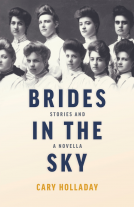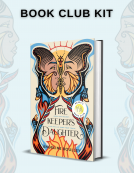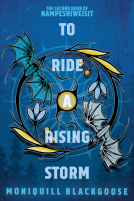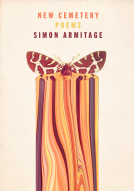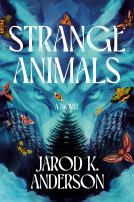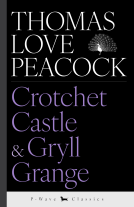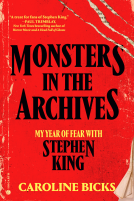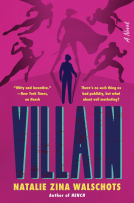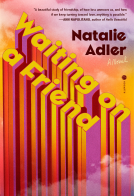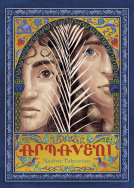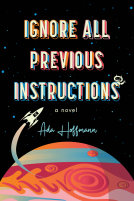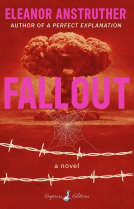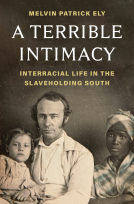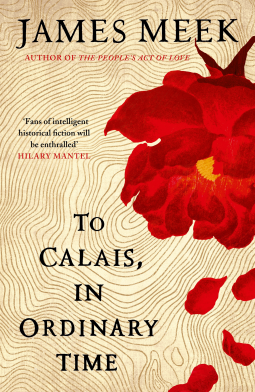
To Calais, In Ordinary Time
by James Meek
This title was previously available on NetGalley and is now archived.
Send NetGalley books directly to your Kindle or Kindle app
1
To read on a Kindle or Kindle app, please add kindle@netgalley.com as an approved email address to receive files in your Amazon account. Click here for step-by-step instructions.
2
Also find your Kindle email address within your Amazon account, and enter it here.
Pub Date Apr 07 2020 | Archive Date Apr 21 2020
Talking about this book? Use #ToCalaisInOrdinaryTime #NetGalley. More hashtag tips!
Description
England, 1348. A gentlewoman flees an odious arranged marriage, a Scots proctor sets out for Avignon, and a young plowman in search of freedom is on his way to volunteer with a company of archers. All come together on the road to Calais.
Coming in their direction from across the English Channel is the Black Death, the plague that will wipe out half of the population of Northern Europe. As the journey unfolds, overshadowed by the archers’ past misdeeds and clerical warnings of the imminent end of the world, the wayfarers must confront the nature of their loves and desires.
A tremendous feat of language and empathy, it summons a medieval world that is at once uncannily plausible, utterly alien, and eerily reflective of our own. James Meek’s extraordinary To Calais, In Ordinary Time is a novel about love, class, faith, loss, gender, and desire—set against one of the biggest cataclysms of human history.
Advance Praise
'Fans of intelligent historical fiction will be enthralled by a story so original and so fully imagined. Meek shows the era as alien, which it is, and doesn’t falsify it by assimilating it to ours. But his characters are recognisably warm and human'
HILARY MANTEL, two times Booker Winning author of Wolf Hall
'An inventive and original novel that captures the distant past and pins it to the page'
The Times, Book of the Month
'A glorious imaginative feat, full of complex, compelling, believable characters. Rarely have I been so captivated by a novel, so keen to hurry back to it and reimmerse myself in its world'
SARAH WATERS
'Meek employs great linguistic invention and remarkable imagination to conjure up a world in which readers rapidly become immersed'
Sunday Times, Books of the Year
'An astounding linguistic fantasy about the advent of the Black Death. French, Anglo-Saxon and Latin collide in a world of fake news, uncertain sexual borders and the dread of a catastrophe which looks in some ways very much like our own'
Spectator, Books of the Year
'Meek brilliantly creates a variety of voices, and a language appropriate to the 14th century, for a story of the distant past with unsettling echoes of the present'
Sunday Times
'A triumphant medieval fable . . . At the centre of this beautiful novel is an exploration of the difference between romance and true love, allegory and reality, history and the present. It plays out in unexpected and delightful ways, and it would be unfair to make these explicit. To Calais, In Ordinary Time ends with a consummation both of its technique and of its story that is affirming, tender and a little bit glorious'
Guardian
Available Editions
| EDITION | Hardcover |
| ISBN | 9781786896742 |
| PRICE | $27.00 (USD) |
| PAGES | 400 |
Average rating from 20 members
Featured Reviews
This is a story about three people travelling through England at the beginning of the Black Death epidemic. The book is written in semi-medieval English and told from three different viewpoints. This is not a book you can just fly through however you won't want to.
 Sarah-Hope P, Educator
Sarah-Hope P, Educator
To Calais, in Ordinary Time is one of those books you enter like a world and realize you want to remain in. To Calais is set in the 14th Century as the Black Death arrives in Britain, so that wanting to remain is very conditional. One doesn't want the death, the brutality, the disrespect for women—but one does want the pacing and the unexpected relationships that form and the ethical considerations faced when every act (or absence) is seen as God's will.
To Calais follows an unusual cohort traveling south to the ports, so the members can sail to Calais for a variety of reasons. There are experienced archers who've fought in Calais earlier and who embody a volatile mix of brutality and honor; a woman these archers raped and abducted the last time they were in France; a young woman escaping marriage to a much older man; a neither-priest-nor-scholar intellectual, charged as the group's spiritual advisor; a young peasant newly joining the archers; and a swineherd in love with this peasant, alternately appearing as himself and as his "sister" Madlen, in hopes of winning that beloved's affections.
Watching these characters define themselves, both individually and in relation to one another, is fascinating and, at times, heart-rending. The language of the novel, which uses older word forms and highlights the difference between the English-English of peasants and the French-English of the nobility, slows the pace a bit in ways that are appropriate to the gradual speed of the journey the characters are undertaking. And, amid all the seriousness and exploration of the complexities of identity are generous moments of humor.
The experience this book offers is surprising, deeply engaging, challenging, and rewarding—a blend of all the best fiction has to offer.
I received a free electronic ARC of this title from the publisher via NetGalley. The opinions are my own.
 Reviewer 492564
Reviewer 492564
An astonishing and brilliant book intended to--and effective at--capturing the world and language of late 14th-century England. A former priest, an archer, and a noblewoman on the run find themselves traveling together to Calais in a time of plague, war, and uncertainty. Exploring social mores, religious belief, gender, sexuality, politics, and more, Meek creates a wondrous tale of resistance and persistence.
 Janine B, Reviewer
Janine B, Reviewer
What an accomplishment this novel is! It's about a group of British folks in the middle ages who set off to cross to Calais and fight the French. The language the author uses gives a feeling of authenticity. Characters meet with a variety of adventures, love, violence, crazy people, beautiful places, and the Black Death. To say this was an eerie and timely read during my first two weeks sequestered at home trying to evade Covid-19 is an understatement.
My stars and praise, however, do not mean this was an easy read. I often checked my kindle's dictionary for word meaning and also from curiosity about word origin. My own recent forays into French made this adventure both more understandable and richer. At times, reading the novel seemed like a lot of work because of the language and I drifted away from it for periods. Also the author is not shy of graphic violence or sex.. Still, the most wonderful things are not usually the most easily won.
I was so happy to choose this book since it's a little out of my "comfort zone" of reading. I usually stick to the same types of books that all have relatively the same plot.
I was intrigued as it seemed more like a diary of someone's thoughts as the book progressed. I feel the author did an excellent job on capturing the moods as they shifted, how people were being effected etc.
Definitely pick up this book if you are wanting something a little different than what you are use to but really enjoy this period in time. I was consumed by this book.
 Librarian 431790
Librarian 431790
A fascinating story with an interesting and well thought cast of characters and a vivid and well researched historical background.
The plot flows and kept me hooked till the end.
Many thanks to the publisher and Netgalley for this ARC, all opinions are mine.
 Annie S, Librarian
Annie S, Librarian
In a horrible sort of coincidence, I ended up reading the perfect book for waiting out a pandemic: a book about the beginning of another pandemic. The Black Death looms over most of To Calais, in Ordinary Time, by James Meek, until the characters run right into it on England’s southern coast in the summer of 1348. Some of the characters think that the plague is a hoax. Others think it’s a French plot. Yet other characters are so caught up in their own personal dramas that they don’t care about the plague at all until people start to sicken and die.
I picked this up because a reviewer for The New York Review of Books discussed how Meek wrote dialogue for his narrators in different registers of English at the time. I am a sucker for books that feature earlier varieties of English. (#wordnerd) Will Quate, a serf who makes a bargain with his lord for his freedom by servicing as a bowman in the English army, speaks in plain English. The daughter of his lord, Berna, speaks an English that his heavily seasoned with French. Berna is a big fan of the Roman de la Rose, a popular allegory of love. Thomas the Proctor speaks and writes a Latinate version of English. At times, the three narrators confuse each other with their vocabularies. Meek brilliantly recreates the Englishes of seven hundred some odd years ago.
To Calais, in Ordinary Time reads like a series of learning opportunities in the form of adventures on the road. Because it’s not safe to travel alone, first Berna and then Thomas join Will’s company of bowmen. There are fights, confessions, and even a pageant of the Roman de la Rose on the way. Slowly, while all of this is happening, Will and Thomas piece together what happened to the woman who is held captive by the bowmen, a Frenchwoman who was raped and abducted just before the battle of Crécy. Berna and her maid Madlen (actually a swineherd Hab, who has disguised themself as their own “sister”) are wrapped up in their own dramas as they chase after men they believe to be their true loves.
My linguistic entry point turned out to be a small part of To Calais, in Ordinary Time. This book revolves around issues of war crimes and rape, different kinds of love, oaths and obligations, atonement, absolution, what it means to be a man or a woman, and so much more. In spite of many opportunities to bend his moral code, Will mostly remains a stubbornly upright man, who refuses to cut and run even when he should. In contrast, Berna has to learn that, for her, romantic love is a fantasy that came from reading her roman too many times. Of all the narrators, she was the one I wanted to yell at the most because of her insistence on following her own plans. It’s only toward the end when Berna grows up. Lastly, Thomas provides many doses of worldly wisdom for his young companions as they make their way south to Calais. I liked Thomas a lot. He’s been on the planet long enough to know how to manipulate the guilty to reveal their crimes so that they can go to purgatory or heaven with a clear consciences.
The end of To Calais, in Ordinary Time, when the company encounters the plague and bowmen start to drop dead, is frightening. The helplessness and fear the characters feel was absolutely palpable, made all the more believable by what I’ve been seeing on the news over the past weeks. I am deeply thankful that the virus sweeping around the planet is far less destructive and deadly as Yersinia pestis was. Thinking back on this book and its apocalyptic ending, I find it very fitting that the plot is all about what characters are willing to fight for, their identities, their loves, and their (more or less malleable) codes of honor. When the world is ending, who are we and what do we stand for?
Readers who liked this book also liked:
We Are Bookish
Mystery & Thrillers, OwnVoices, Teens & YA
Thomas Love Peacock
General Fiction (Adult), Humor & Satire, Literary Fiction
Kendra Langford Shaw
General Fiction (Adult), Literary Fiction
